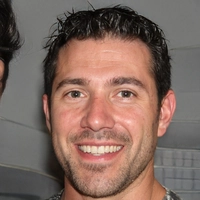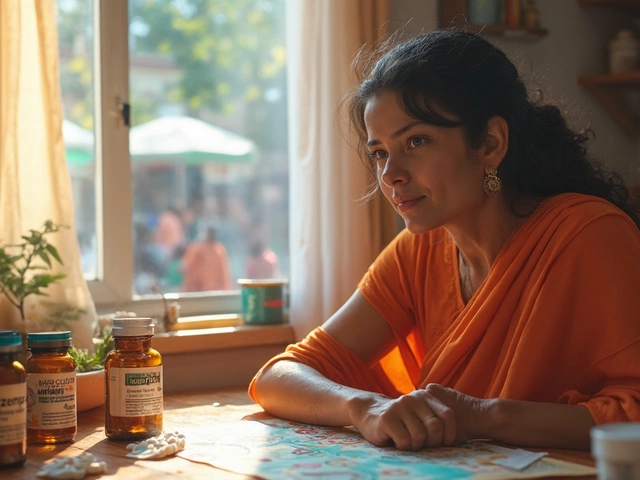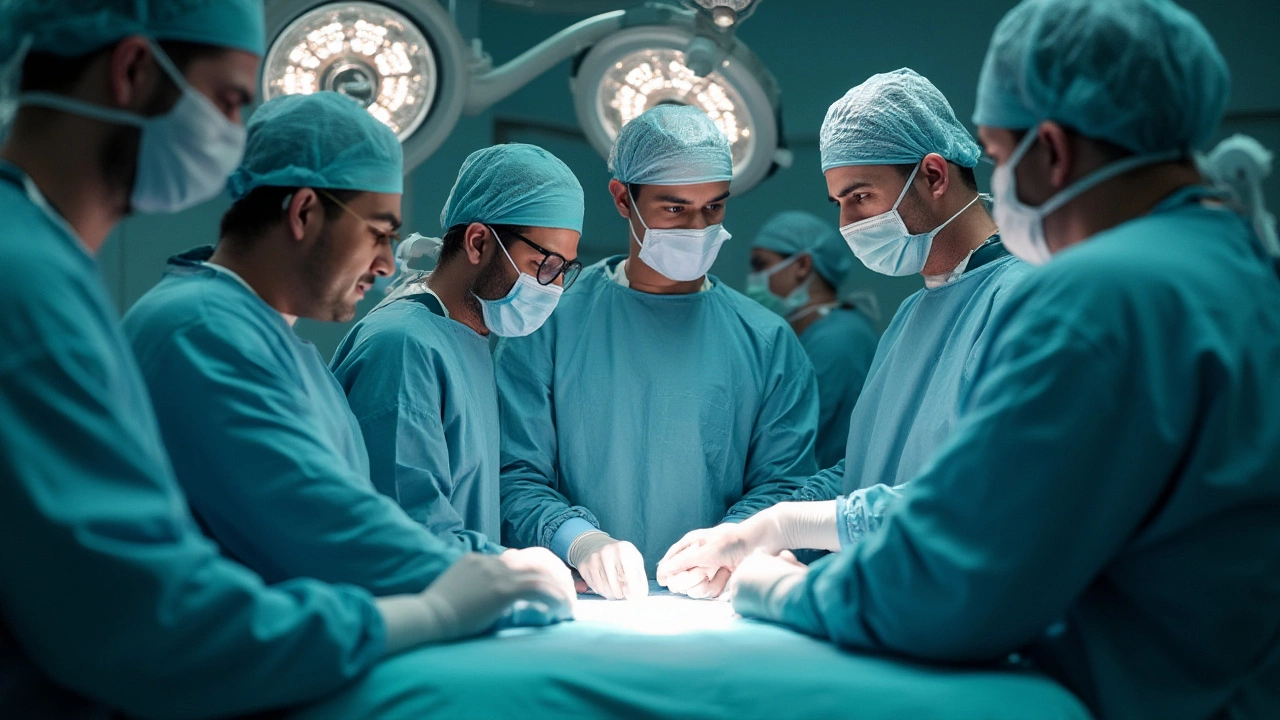
Every year, millions put their lives into the hands of surgeons, trusting them with their biggest hopes and fears. But the world’s best surgeon isn’t just the one who racks up the most complex procedures. The title is chewy. There’s skill, but there’s also empathy, creativity, and the relentless pursuit of medical frontiers. You might expect one single global icon—maybe a rockstar from Johns Hopkins or a legend from Mayo Clinic—to wear the crown, but the truth is messier. The story of history’s greatest surgeons is marked by rivalries, split-second decisions, and the stubborn dare to challenge what’s ‘impossible.’
Defining 'The Best': What Makes a Surgeon Truly Exceptional?
People throw around words like 'genius,' but being truly world-class as a surgeon is a cocktail of grit, steady hands, and deep brains. A top surgeon has to be fiercely driven, of course, logging thousands of hours in the operating room. But the weird part? Pure technical skill sometimes takes a back seat to something less obvious—decision-making under pressure. Legendary French surgeon René Leriche once said, "Every operation is a race between life and death." That adrenaline-pounding split second is what separates the greats from the rest.
And people forget: surgery is a team sport. Surgeons don’t work alone. Communication with nurses, anesthetists, assistants—it’s all synced up like a band in concert. Clear leadership keeps patients safe, especially when seconds count. But empathy is woven through it all. Dr. Atul Gawande, a Harvard surgeon and best-selling author, often talks about listening as much as cutting. Patients aren’t slabs of meat—they’re worried, hopeful, and often terrified. The best surgeons calm them down, translate medical mumbo-jumbo, and help them feel okay about putting their lives in their hands.
Here’s another mind-bender: great surgeons don’t just follow the book. They rewrite it. Both Dr. Michael DeBakey and Dr. Denton Cooley, for example, pioneered heart surgery techniques in the 20th century. Their rivalry was famously spicy, but the result? Each pushed the boundaries of what was possible, changing survival rates for countless cardiac patients.
- Mental stamina matters more than raw talent; studies show error rates in surgery shoot up after just one bad night’s sleep.
- Cultural humility: Top surgeons learn from failings, including their own. Many keep ‘morbidity and mortality’ journals, tracking every mistake as carefully as their wins.
- Innovation: It’s no accident that modern legends like Dr. Devi Shetty built entire hospital models in India to slash costs and boost survival for the world’s poorest patients by making surgery more affordable.
So picking the *best* is more than a scoreboard. There’s raw skill, pressure cooker decision-making, people smarts, and the balls to try something nobody has dared before. The best surgeons combine it all, day in and day out.
Names That Changed the Game: Legendary Surgeons Past and Present
Ask 10 doctors who the world's top surgeon is, and you’ll get 15 different answers. Over the decades, some names have become lore. It’s not always about big shows; sometimes the greatest change happens quietly, in a single operating room.
- Dr. Michael DeBakey (USA): The man practically invented modern cardiovascular surgery, helping design the first artificial heart and doing over 60,000 heart surgeries. His inventions—like the roller pump—make open-heart surgery possible even today.
- Dr. Gholam A. Peyman (Iran/USA): Ever had LASIK eye surgery, or know someone who has? Dr. Peyman invented it, letting millions ditch their glasses. He holds over 120 medical patents and never stopped innovating.
- Dr. Devi Shetty (India): Nicknamed the ‘miracle doctor’ of Bangalore, he made heart surgery accessible for poor kids in India. His ideas turned Narayana Health into one of the most efficient cardiac surgery centers—delivering top-tier care for a tenth the price of Western hospitals.
- Dr. Patrick Soon-Shiong (South Africa/USA): This guy did the world’s first encapsulated human islet transplantation, pushing new frontiers in cancer and diabetes surgery too.
- Dr. Mehmet Oz (Turkey/USA): TV fame aside, he’s a heart surgeon who pioneered minimally-invasive heart valve surgery, making faster recoveries possible for thousands.
- Dr. Susan Lim (Singapore): Broke ground as the first in Asia to perform a live donor liver transplant. Despite facing controversy, her record speaks to the guts it takes to lead in surgery.
- Dr. Alfredo Quinones-Hinojosa (Mexico/USA): Came to America as a farm laborer, now leads brain tumor surgery at Mayo Clinic. His work in pituitary and skull-base tumors is world-renowned.
Here’s the twist: the ‘best’ is always evolving. Take brain surgeon Dr. Sanjay Gupta—beyond his TV presence, he’s pulled off impossible cases using techniques learned from operating in war zones. Or Europe’s Dr. Paolo Macchiarini, who pioneered bioengineered windpipe transplants, though his scandals show how even icons can fall.
Surgeons blend old tricks and new tech. The best are never done learning—one Stanford study found that surgeons who train using simulation (VR or robotics) cut error rates by as much as 40%. The best surgeons embrace new gear, from wearable visualization goggles to surgical robots, but they always remember that the knife is just one piece of the puzzle.
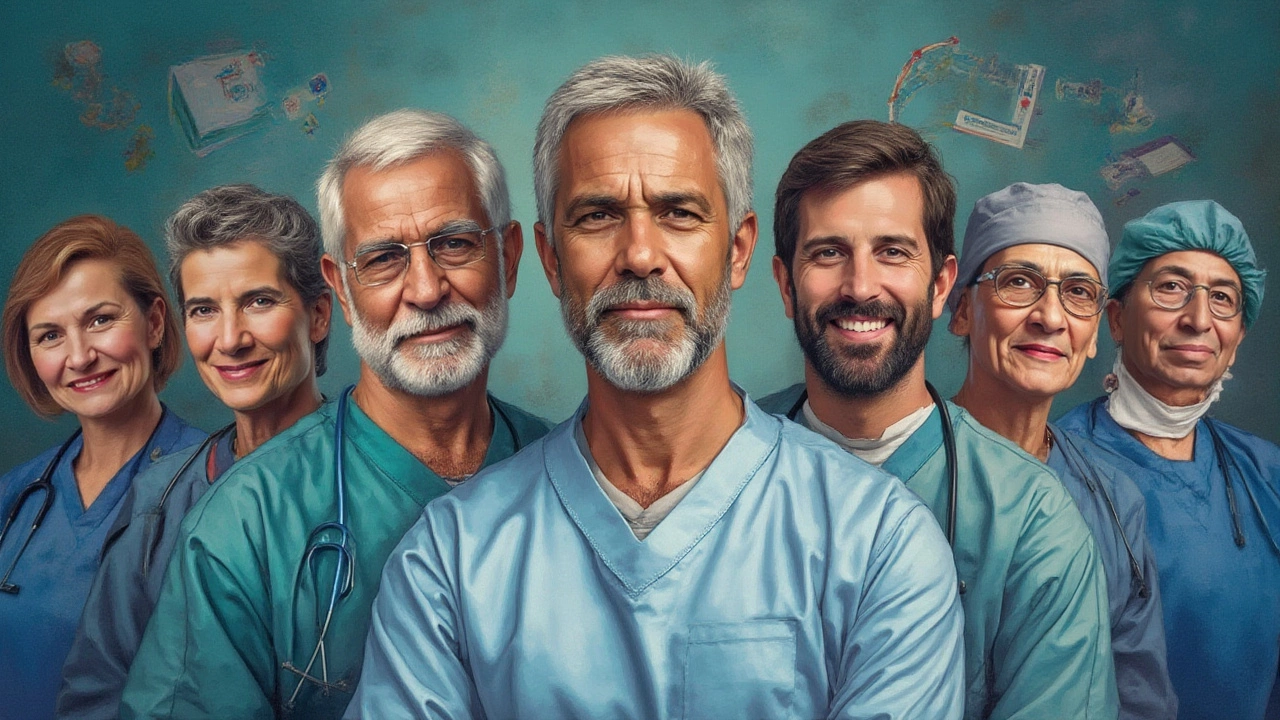
Surgical Specialties: Picking the Best By Field
No one claims to be a master at everything. Being the best surgeon in the world really means being the best at a specific kind of surgery—brains, hearts, bones, or something even more niche. Each specialty has its own rockstars.
Neurosurgery (brains and nerves): Dr. Henry Marsh (UK) is famous for his deep empathy with families, not just his scalpel work. Dr. Robert Spetzler (USA) has handled some of the world’s most dangerous aneurysms, earning worldwide respect. Brain surgery is high wire stuff; one slip can change a life forever.
Cardiac Surgery (hearts): The Houston heart team—DeBakey, Cooley, and Frazier—were the Michael Jordans of heart transplants. But the baton keeps passing: today, teams in Cleveland Clinic and Mayo Clinic execute complex heart reconstructions nearly daily. Dr. Devi Shetty has made high-volume heart surgery accessible on a global scale.
Orthopedic Surgery (bones and joints): Dr. C. Niek van Dijk (Netherlands) redefined ankle arthroscopy, while Dr. David Altchek (USA) is the secret weapon behind the world’s top athletes (Yankees, Mets, NBA stars). Patients flock for a chance to run and jump again.
Pediatric Surgery: Dr. Ben Carson made waves separating conjoined twins in 1987. In the 21st century, the focus has moved to minimally invasive procedures and new tissue engineering techniques, so kids recover faster than ever. Tokyo’s Dr. Hisashi Nikaidoh’s work with ‘heart switch’ procedures is legendary.
Oncology Surgery (cancers): Dr. Nancy Ascher (USA) in liver transplants, Dr. Charles Balch in melanoma, and Dr. Patrick Soon-Shiong with pancreatic cancer—each have fought on the true frontlines of cancer. The very best push cancer surgery survival rates upward bit by bit.
| Specialty | World-Leading Surgeon | Key Breakthrough |
|---|---|---|
| Neurosurgery | Dr. Henry Marsh | Pioneering awake brain surgery |
| Cardiac Surgery | Dr. Devi Shetty | Affordable heart surgeries |
| Orthopedic Surgery | Dr. David Altchek | Sports injury reconstructions |
| Pediatric Surgery | Dr. Ben Carson | First separation of twins joined at head |
| Oncology Surgery | Dr. Nancy Ascher | Pioneering liver transplant in cancer patients |
The chase to be the best is fierce and never-ending. Surgeons always compete with their former selves and each other for that next tiny bump in success rates. But patients have gotten choosier, demanding not just the fanciest brand name, but surgeons who will really treat them like people, not projects.
Beyond Technique: The Human Side of Surgical Mastery
Even when you’re wielding a scalpel, people skills can matter as much as hand skills. Seasoned surgeons will tell you—95% of surgery is about conversations, not cuts. The talk before, the explanation after, managing families’ questions, helping a cancer patient confront a scary future. The best surgeons have patience for all of it.
In the operating room, things don’t always go to plan. Unexpected blood loss, surprise anatomy, weird complications—every seasoned surgeon has 'war stories.' Medicine is filled with close calls, but the best surgeons keep their cool. They anticipate problems before they happen. A landmark study in The BMJ found that simple pre-surgery checklists cut major complication rates by 40%. Why? Because top teams plan for emergencies, together.
Surgical outcomes aren’t just about the sharpness of the knife. Stress, anxiety, and communication fumbles impact recovery rates. One 2018 survey by the American College of Surgeons reported patients treated by the highest-rated communicators had lower rates of post-op infections and even shorter hospital stays.
Here are some tips for patients hunting for elite surgeons:
- Don’t just Google—speak to former patients. Firsthand stories tell you more than star ratings ever could.
- Ask the surgeon how many times they’ve performed your specific operation. Experience lowers risk, period.
- Team matters. Sometimes, the strength isn’t just in one person but in a surgical department—that’s why Cleveland Clinic gets flown-in cases from around the globe.
- Pay attention to how they talk. If they rush you, brush off questions, or don’t explain risks—you can do better.
- Look for hospitals and surgeons involved in ongoing research and innovation. It shows they’re learning, not just repeating.
The human part also shows when things go wrong. The best surgeons own up. They call patients after surgery, explain anything unexpected, and don’t dodge tough conversations. Even in the best hands, medical errors happen. The ones who stand out are the ones who show up—not just when it’s easy, but when it gets hard.

Finding Your Best: Tips, Resources, and a Look Ahead
The golden question—how do you actually find the world’s best surgeon if you need one? The honest answer: it’s a mix of research, word of mouth, and trusting your instincts. With all the impressive award plaques and viral headlines, the reality is still deeply personal.
Here’s where to start your search:
- Look for board certification and specialty societies—like the American College of Surgeons or your local equivalent.
- Use resources like Healthgrades, U.S. News & World Report, or castleconnolly.com, all of which list 'top doctors' by specialty. But remember, these lists are just starting points.
- If you need a rare or innovative operation, seek out academic centers. They have surgeons who train others, design new procedures, and sometimes even write the guidelines everyone else follows.
- Don’t get blindsided by reputation alone—sometimes quietly excellent surgeons skip the publicity but deliver incredible results.
- If costs are crushing, medical tourism in places like India, Thailand, or Turkey puts great surgeons within reach. Just vet the hospital—and surgeon—very carefully. Some of the most respected cardiac and orthopedic surgeons practice in India (Narayana, Apollo, Fortis).
Surgeons are also riding the tech wave. Remote robotic surgery is already live in some places—imagine a specialist in London guiding surgery in rural Kenya by robot arm. Artificial intelligence is starting to help with pre-op planning and even making split-second recommendations. But for now, the best surgeon in the world is still a human—someone who knits together science, skill, and compassion better than anyone else in the room.
Chasing the world’s ‘best’ surgeon isn’t about a name etched in marble. It’s about knowing what greatness really looks like. Sometimes, it’s the surgeon who found a weird tumor nobody else noticed. Or the one who spent that extra 10 minutes making sure you, the patient, understood what was going on. The world’s best surgeon? It might just be the one standing at your bedside, shoulders tired but heart still full, ready to fight for your shot at another tomorrow.
Categories
Popular Articles
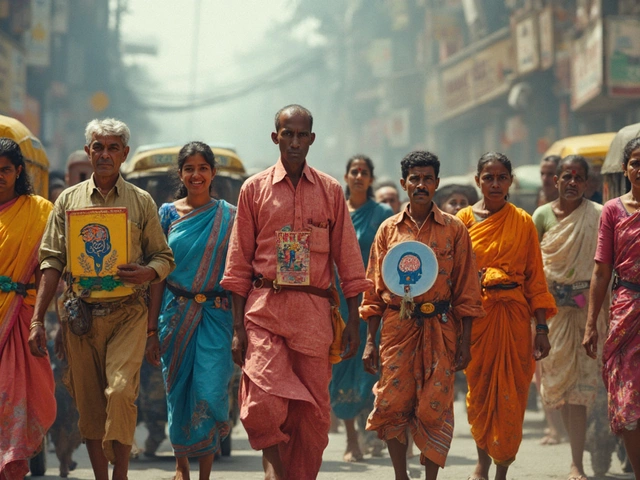
Apr 5 2025

Mar 29 2025
